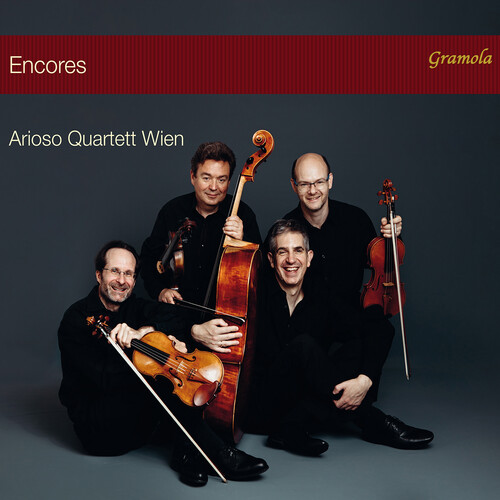Show results for
Deals
- 4K Ultra HD Sale
- 50s Films Sale
- Action Sale
- Alternative Rock Sale
- Anime sale
- Award Winners Sale
- Bear Family Sale
- Blu ray Sale
- Blues on Sale
- British Sale
- Christmas in July
- Classical Music Sale
- Comedy Music Sale
- Comedy Sale
- Country Sale
- Criterion Sale
- Drama Sale
- Electronic Music sale
- Folk Music Sale
- Horror Sci fi Sale
- Kids and Family Sale
- Metal Sale
- Music Video Sale
- Musicals on Sale
- Mystery Sale
- Naxos Label Sale
- Page to Screen Sale
- Paramount Sale
- Rap and Hip Hop Sale
- Reggae Sale
- Rock
- Rock and Pop Sale
- Rock Legends
- Soul Music Sale
- TV Sale
- Vinyl on Sale
- War Films and Westerns on Sale

Encores
- Format: CD
- Release Date: 10/7/2022

Encores
- Format: CD
- Release Date: 10/7/2022
- Composers: Edward Elgar, Felix Mendelssohn Bartholdy, Johann Sebastian Bach
- Label: Gramola
- UPC: 9003643992740
- Item #: 2514344X
- Genre: Classical
- Release Date: 10/7/2022

Product Notes
If the Arioso Quartett Wien, founded in 1994 and with a nearly unchanged lineup ever since, were to have a motto, it might be that. "Arioso" means "pertaining to the voice" but also "sonorous". The name, as it were, says it all. But which sound is the desirable one? What's the sound-ideal? The oft-quoted "Wiener Klang", that particular way in which Viennese ensembles interpret orchestral and chamber music, is hard to define. What is it exactly - and is it really a thing? This ensemble is convinced: it does exist. But it doesn't so much refer to externalities - where the bow hits the strings, for example, or how much pressure is used or whether and what specific vibrato is employed. Nor does it need fancy, expensive instruments (although they certainly don't hurt). Hearsay has it, that members of American orchestras were often surprised that an orchestra can sound so good after they inspected the relatively "cheap" string instruments of their Viennese colleagues. "Wiener Klang" really is more about an attitude; the way one approaches music. This includes taking into account the personal circumstances of the composer, their emotional and physical constitution at the time of writing the work in question, their mentality (to the extent that letters or eyewitness accounts have told us anything about that), and the surroundings in which the work at hand had been written.

